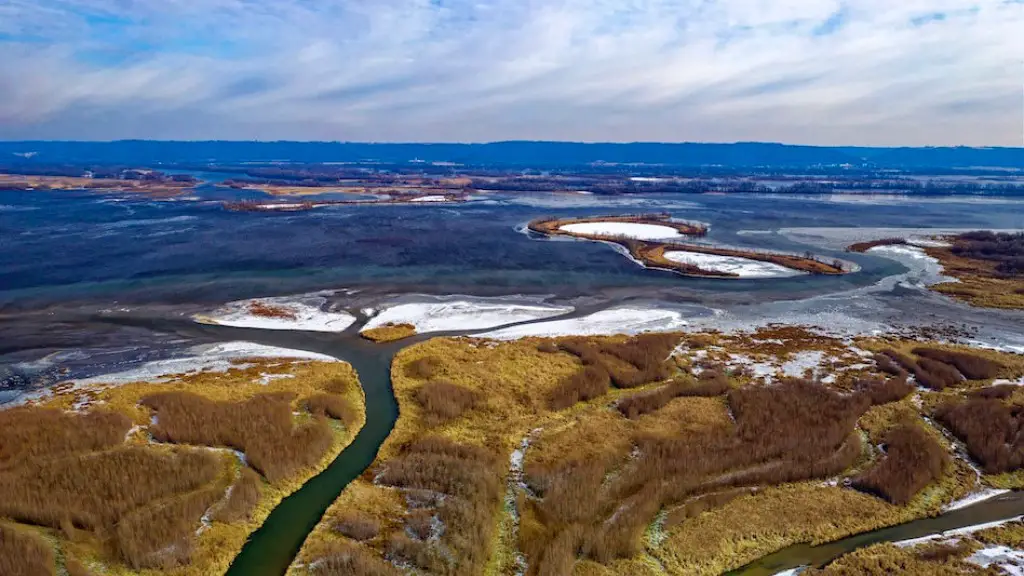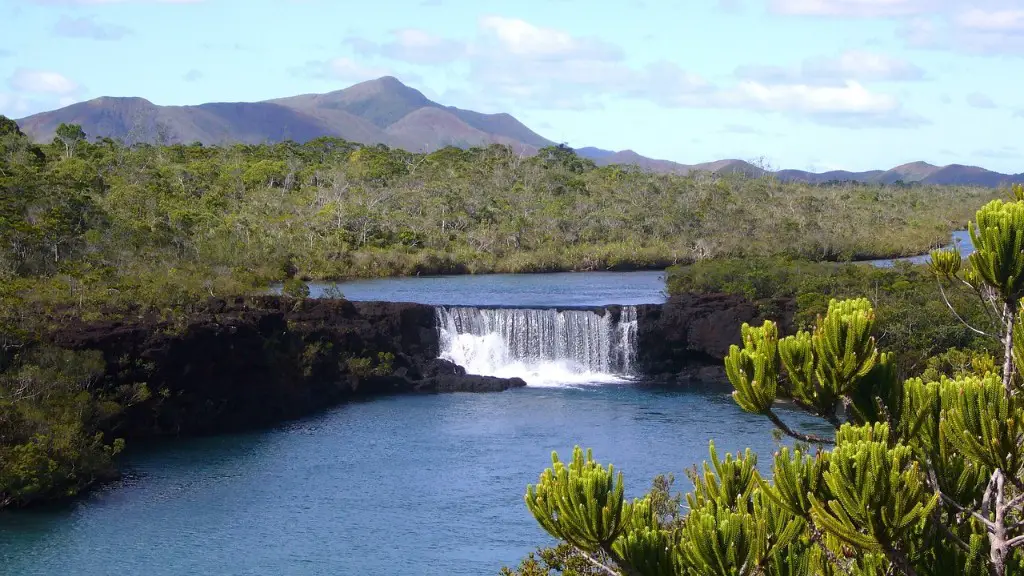Father Jacques Marquette, a French missionary and explorer, was one of the first Europeans to explore the Mississippi River. In 1673 Marquette and his colleague Louis Jolliet set out on an expedition to examine the Mississippi River and the Great Lakes and the lands connected to them. Marquette started the expedition at what is now Chicago, Illinois and followed the Illinois River until it joined the Mississippi. The two then continued down the Mississippi river until they reached the mouth of the Arkansas River.
According to some accounts Marquette and Jolliet first sighted the Mississippi River on June 17, 1673. As they traveled downstream they encountered numerous Native American tribes who warned them of the fearful, man-eating creatures that lived further downstream. Nevertheless, Marquette and Jolliet pushed on and traveled about two thousand miles of the Mississippi River before turning back for fear of Spanish authority in the area.
Throughout the expedition, Marquette kept extensive notes which provided detailed accounts and served as valuable resources for subsequent explorations. He was an incredibly talented linguist, which allowed him to communicate with the Native Americans they encountered. Among other accomplishments, Marquette could claim to have imparted Christianity to the natives as well as to have discovered the mouth of the Arkansas River.
Marquette’s expedition was an incredibly important part of the exploration of North America. While his expedition didn’t bring any significant territorial gains, it provided detailed descriptions of the previously unknown lands and the inhabitants. Ultimately, this contributed to the settlement of the area by Europeans in the centuries that followed. The Jesuit Relations, which was a collection of narratives compiled from the notes taken by Marquette and other priests who similarly explored the river and surrounding areas, was one of the most influential documents for the settlement of the Mississippi and the surrounding region.
Marquette was an extraordinary explorer who utilized the unique combination of his skills in linguistics and theology to advance his explorations. He was an intrepid explorer who was not afraid of the unknown and had a keen sense of confidence to push further than anyone else. He encountered many dangerous and mysterious creatures as he traveled along the mighty Mississippi, but he boldly pressed on. Marquette and Jolliet also set the stage for other expeditions that followed and opened up the Mississippi valley for future settlement.
Influence of French Missionaries
The French authorities viewed the exploration and settlement of North America as an effective way to control colonial territories and to Christianize Native Americans. To this end, French missioners were sent to explore the Mississippi and the Great Lakes regions. The teachings the missionaries brought with them had a lasting impact on the Native Americans, a few of whom were even converted to Christianity. The conversions were seen as a success for the missioners and provided them with a renewed sense of purpose in their mission.
Though the missioners were unsuccessful in converting large numbers of Native Americans to Christianity, their presence in the area was instrumental in furthering European exploration. The knowledge the missionaries gained from their expeditions was invaluable, as it provided Europeans with an understanding of the environment and the inhabitants.
The missioners also helped to facilitate relations between Europeans and Native Americans and provided the tribes with essential goods such as metal tools, firearms, food, and clothes. The interactions between the missioners and the tribes provided Europeans with valuable information and access to Native American land and resources.
Significance of Father Marquette’s Explorations
The exploration led by Father Marquette was one of the most important expeditions in the discovery of North America. Marquette and his expeditionaries pushed farther than any previous European explorer and gained knowledge that would prove to be invaluable for the settlement of the Mississippi River valley. Marquette was an intrepid explorer and made use of his knowledge in theology and linguistics to facilitate relations with Native Americans and to travel further into the unknown. The information he gathered provided Europeans with the means to settle the Mississippi valley and to learn more about the land and its inhabitants.
Father Marquette’s exploration was also immensely influential. His notes, which were compiled into Jesuit Relations, were some of the most influential documents in the settlement of the Mississippi Valley and the surrounding regions. His expedition set the stage for other explorations and enabled Europeans to gain a better understanding of the environment and existing population in the area. Marquette’s exploration of the Mississippi was a defining moment in the settlement of the area and his adventurous spirit set the tone for future exploration.
Significance of Father Joliet’s Extensive Mapping
Louis Jolliet, Marquette’s fellow explorer and a Canadian-born geographer and cartographer, played a major role in the expedition. His detailed mapping of the area was invaluable for the exploration and provided Europeans with a better understanding of the terrain and routes to be taken. Jolliet was also adept at navigating on foot and by canoe and his expertise enabled him to safely lead the expedition downstream. He was also responsible for gathering the scientific and geographical data needed to create accurate navigational maps.
Jolliet’s ability to analyze scenarios and plan routes enabled Marquette and his comrades to safely explore the Mississippi and the area surrounding it. His precise mapping of the area provided Europeans with the vital geographical information needed to further explore and settle the Mississippi Valley. Jolliet’s work was essential to Marquette’s expedition and his detailed navigational maps provided Europeans with precise and detailed information on the area.
Impact of the Expedition on Native Americans
Father Marquette’s exploration of the Mississippi River had a significant impact on Native American tribes. The Jesuit Relations were one of the most influential primary sources for information about the people living in this region, such as their social and cultural customs and customs. The accounts provided by the missioners enabled Europeans to better understand the tribes and also taught them about their beliefs, values, and traditions. Furthermore, the information gathered by the missioners enabled them to make contact with the Native Americans in order to learn more about the tribe’s lands and resources and to build relationships with them.
The missioners also provided Native Americans with essential goods such as metal tools, firearms, food, and clothes. Additionally, during their expeditions, the missionaries imparted Christianity to the tribes, which had a major impact on their beliefs. The missionaries’ presence greatly influenced the tribes and facilitated the European settlement of the Mississippi Valley and surrounding regions.
Political Impact of the Expedition
Marquette’s expedition also had significant political consequences. His success in discovering the mouth of the Mississippi threatened the Spanish monopoly in the area, which ultimately lead to the French gaining control of the region. The French authorities saw the exploration of North America as an effective way to further their control over colonial territories. The knowledge gained from his expedition about the region, especially the presence of tribes living there, enabled the French to access the land and resources in the area and eventually displace the Spanish in the region.
The expedition also resulted in a shift in the balance of power between the Spanish and the French. The expedition was instrumental in strengthening French control over the Mississippi Valley and enabled them to claim the region as their own. The expedition helped catapult the French to the forefront of power in the region and enabled them to further their territorial ambitions.
Legacy of Father Marquette’s Expedition
Father Marquette’s exploration of the Mississippi was a milestone in North American exploration. Though his expedition did not bring any significant territorial gains, it was nevertheless incredibly important in furthering European exploration and settlement in the region. His expedition set the stage for other explorations and gave Europeans a better understanding of the existing population and environment in the area. His exploration opened up the Mississippi valley for future settlement and consequently had a major impact on the political, social, and cultural development of the region.
Marquette was an extraordinary explorer and made use of his knowledge in linguistics and theology to advance his explorations. His expedition enabled Europeans to gain access to the land and resources of Native Americans and facilitated the settlement of the area by Europeans. His exploration of the Mississippi River had an immense impact on the exploration and settlement of North America and his legacy lives on in the subsequent explorations and development of the region.




